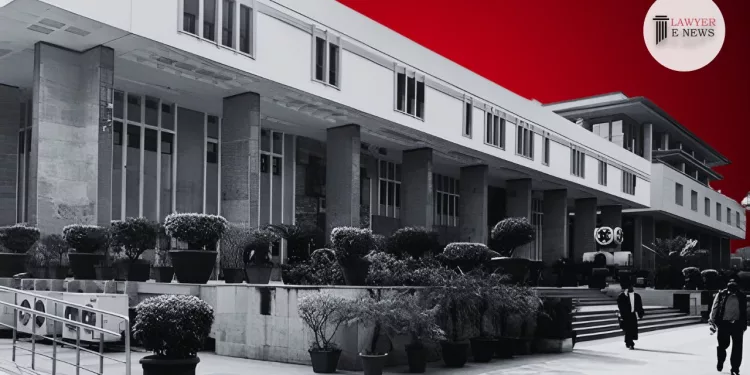Appellants Bound by Terms of Settlement Agreement; Misrepresentation Defence Insufficient: Delhi High Court Upholds Loan Recovery Decree

In a significant ruling, the Delhi High Court has dismissed an appeal by Anil Sharma and others, confirming the enforceability of a settlement agreement involving high interest rates on a defaulted loan amount. The judgment, delivered by a division bench comprising Justice Vibhu Bakhru and Justice Tara Vitasta Ganju, highlighted that the appellants were bound by the admissions made during the mediation process and could not substantiate their allegations of misrepresentation and duress.
Legal Context and Dispute Overview:
The appellants challenged the trial court’s decree for the recovery of ₹2,03,00,000 along with accrued interest from Genesis Finance Co. Ltd. under a Settlement Agreement dated January 24, 2014. They argued that the agreement, which stipulated an interest rate of 36% per annum on a reducing balance method, was signed under duress and misrepresentation. The dispute centered on whether the agreement terms, especially concerning the interest rate, were binding and enforceable.
Factual Background and Legal Issues:
The original loan agreement in May 2011 was for ₹2,75,00,000 at a flat rate of 17.67% interest, translating to about 30.08% on a reducing balance method. The appellants later entered into a Settlement Agreement during mediation, which they claimed was executed under misleading circumstances. However, the court noted that these claims were not supported by the evidence presented, including the fact that the appellants had adhered to the repayment schedule until disputes arose.
Detailed Court Assessment:
Validity of the Settlement Agreement: The court affirmed that the Settlement Agreement, mediated and acknowledged by both parties, was validly executed, dismissing the appellants’ claims that they were coerced or misled during its signing.
Interest Rate Justification: Although the Settlement Agreement specified a 36% interest rate, the trial court adjusted this to 24% without detailed explanation. The appellate court did not contest this modification, acknowledging the plaintiff’s acceptance of the reduced rate.
Jurisdiction and Applicability of Laws: The appellants contested the jurisdiction, claiming protection under the Recovery of Debts and Bankruptcy Act, 1993, and the SARFAESI Act. The court clarified that these acts were not applicable as the plaintiff was not a bank or financial institution but a private finance entity.
Claim of Misrepresentation and Duress: The appellants’ defense of signing the agreement under misrepresentation was found to be unsubstantiated. The court pointed out the lack of evidence supporting claims that the loan terms were not fully disclosed or understood.
Decision: Upholding the preliminary decree, the court dismissed the appeal, emphasizing that the appellants had failed to provide credible evidence to challenge the binding nature of the Settlement Agreement. The court concluded that the appellants were aware of the terms and had not shown any material that could justify overturning the agreed conditions.
Date of Decision: May 08, 2024
ANIL SHARMA AND ORS. versus GENESIS FINANCE CO. LTD. AND ORS.






